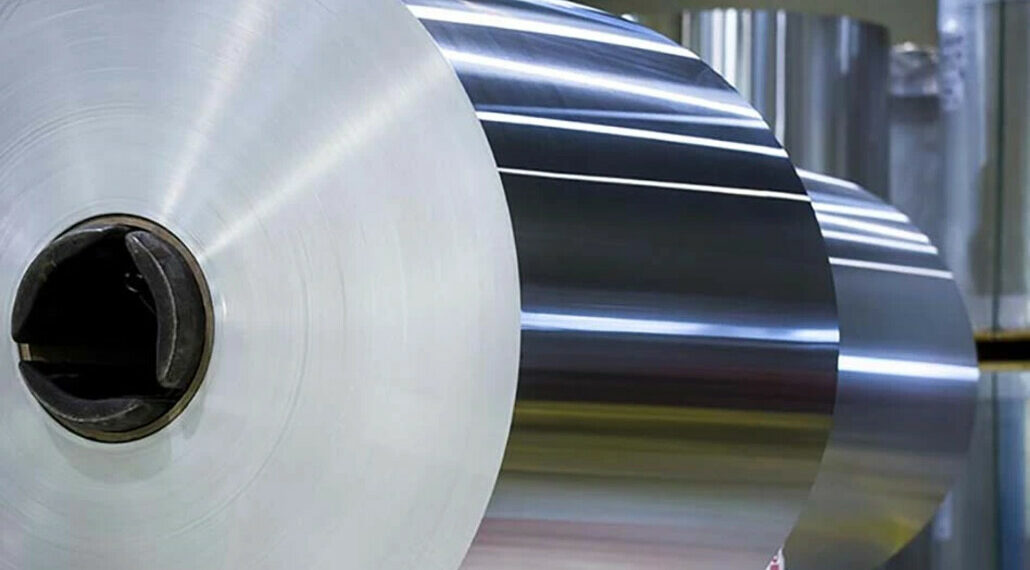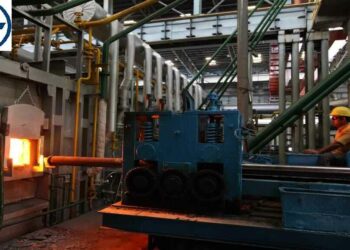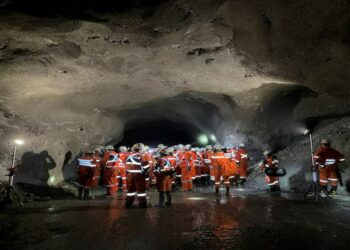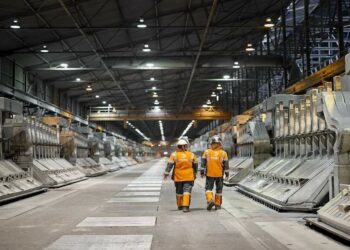Century Aluminum has officially entered Phase 1 of a four-phase agreement under a Department of Energy (DOE) grant initiative, representing a significant step in strengthening domestic aluminum production capabilities. This grant, originally extended in March 2024, is part of the DOE’s efforts to enhance clean energy demonstrations and bolster critical supply chains.
“This step reflects a strong commitment to bolstering domestic aluminum manufacturing capacity, reducing reliance on imports and fortifying critical supply chains integral to national security and economic growth,” according to a news release from Washington-based SAFE (Securing America’s Future Energy) announcing the award.
Century Aluminum was selected in March 2024 by the U.S. Department of Energy Office of Clean Energy Demonstrations under the Industrial Demonstrations Program (IDP). The company has begun negotiations for up to $500 million in funding under the Bipartisan Infrastructure Law and Inflation Reduction Act to establish a new aluminum smelter.
Addressing U.S. Aluminum Supply Chain Vulnerabilities
Aluminum plays a pivotal role in industries spanning defense, infrastructure, and clean energy, and has become a cornerstone of U.S. economic and energy security. The new DOE-backed project underscores the need to increase domestic production, reduce reliance on imports, and mitigate risks associated with global supply chain instability.
“America’s ability to lead again on production of critical materials like aluminum is essential to safeguarding its economic sovereignty and reducing exposure to geopolitical adversaries who seek to dominate global supply chains,” says Joe Quinn, executive director, Center for Strategic Industrial Materials at SAFE.
This initiative is seen as a critical step toward reshaping the aluminum industry, modernizing supply chains, and reinforcing America’s leadership in sustainable and strategic materials production.
SAFE’s mission centers on advancing policies that support America’s ability to produce critical materials domestically, ensuring economic security and insulating against foreign economic pressures. The organization’s Center for Strategic Industrial Materials (C-SIM) collaborates with producers, buyers, and government entities to strengthen domestic industry supply chain resilience.
A Major Job Creation Opportunity
Century Aluminum expects the proposed smelter project to create significant economic opportunities within the U.S., including:
Over 1,000 full-time jobs represented by the United Steelworkers union.
More than 5,500 construction jobs during the smelter’s development phase.
Additionally, the company plans to work closely with local job training organizations and technical colleges near the smelter’s chosen location, ensuring community members have access to the training needed to secure these opportunities.
Although the exact site for the new smelter has not yet been determined, Century has indicated that the plant is likely to be built within the Ohio/Mississippi River basins, consistent with its efforts to align with existing energy and transportation infrastructure.
Aligning With U.S. Modernization and Sustainability Goals
SAFE notes that Century Aluminum’s agreement with the DOE aligns with ongoing national efforts to modernize energy systems, integrate sustainable practices, and foster industrial innovation. These efforts ensure the competitiveness of the U.S. aluminum sector on the global stage while prioritizing environmental sustainability.
The DOE-funded project marks a forward-looking step for Century Aluminum, the U.S. aluminum industry, and the broader economy. It reinforces America’s commitment to securing critical materials supply chains, bolstering job creation, and advancing sustainable manufacturing practices.










